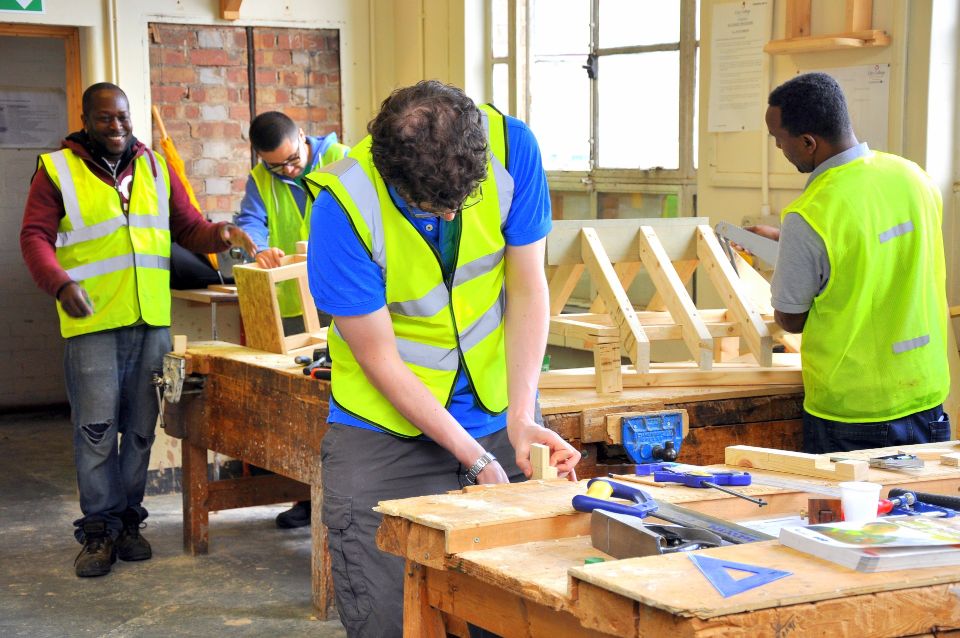Joiners are one of the most important trades in all of construction and are constantly in demand. This means that moving into this career is something that many people think about. However, if you are not already working in construction, it is sometimes hard to know where to start!
If you find yourself in this situation, take a look at our very simple steps (below) to becoming a joiner.
What Does a Joiner Do?
In the most basic terms, joiners work in the carpentry sector, with wood, to make a variety of items. This includes different parts of buildings and furniture such as skirting boards, doors, window frames, floorboards, and staircases.
There are a few different ways to become a joiner. Below shows the most common ones.
- Gain The Right Qualifications
Gaining academic qualifications will show potential employers the high-level knowledge you have and set you apart from other candidates. Common examples of this are starting an apprenticeship course or completing a college joinery course. In addition, if you plan to work on a building site, a Construction Skills Certification Scheme (CSCS) card is a must.
There are a couple of college courses that you can take to become a joiner: level two and level three. Often, the exact course depends on what you want to focus on as a joiner. For example, there are courses in bench joinery and wood machining.
For a level two college course, you’ll need at least two GCSEs which are grades 9 to 3. If you are applying to a level three college course, you’ll usually need four or five GCSEs which are grades 9 to 4.
- Make Sure You Have The Correct Tools
Although trainee joiner jobs might see you using your employer’s tools, you will need your own set if you plan to turn self-employed. This usually includes tools such as:
– Marking tools/joiners pencil
– Tape measure
– L-shaped and triangular squares
– Spirit level
– Power drill
– Circular and hand saws
3. Make Sure You Have The Right Skills
The nature of the work means you should be physically fit. It is also to develop your communication skills, so you can talk effectively to clients or other tradespeople. Additionally, you will need good problem-solving skills because not every project will go to plan. Lastly, it’s worth knowing that joiners sometimes must travel across the country for jobs and work away from home for extended periods.
Career Progression For Joiners
Most people’s first joiner jobs are with firms. Once you have some experience – whether that be through paid work, work experience, or an apprenticeship, you can apply for entry-level positions. As you progress, your wage will also naturally start increasing.
The average salary for joiners who work as employees is currently between £30,000 – £50,000 per annum. However, if you become self-employed, you could earn more than this because you can set your own rates. This can be in the region of at least £200+ per day per day. Experienced joiners also have the chance to follow other career paths, such as project managers or supervisors. This can bring higher salaries and the flexibility to explore work in other areas of construction.
Find Trainee Joiner Jobs Near Me With King Contract Services
If you have ever wondered ‘what is a joiner job?’ or are looking for a joiner job description sample, let King Contract Services assist you. Our expert team can explain more about this role and how to get into it. Apply online today or contact hello@kingcontractservices.co.uk for more details.
Image Source: Pixabay
